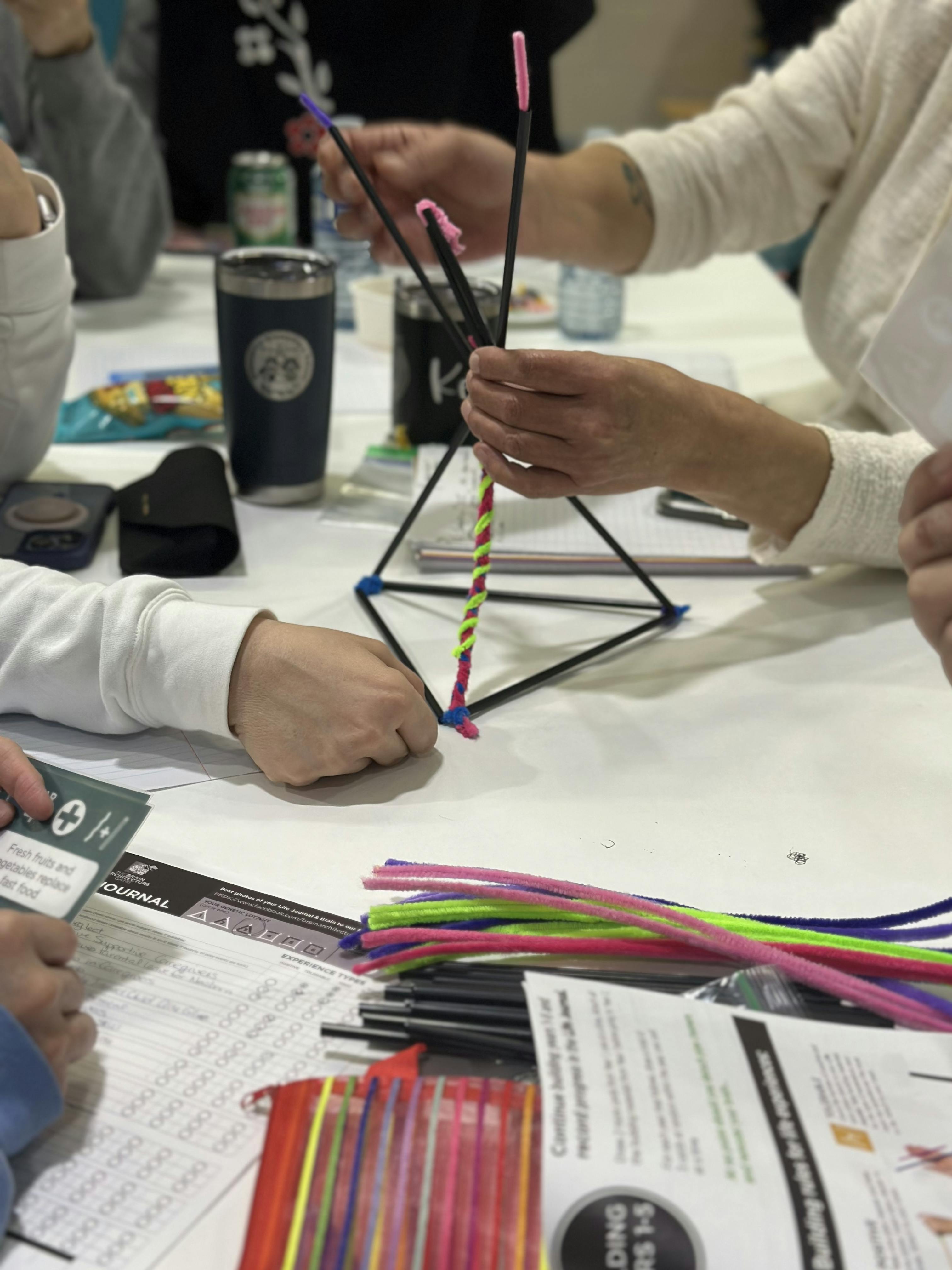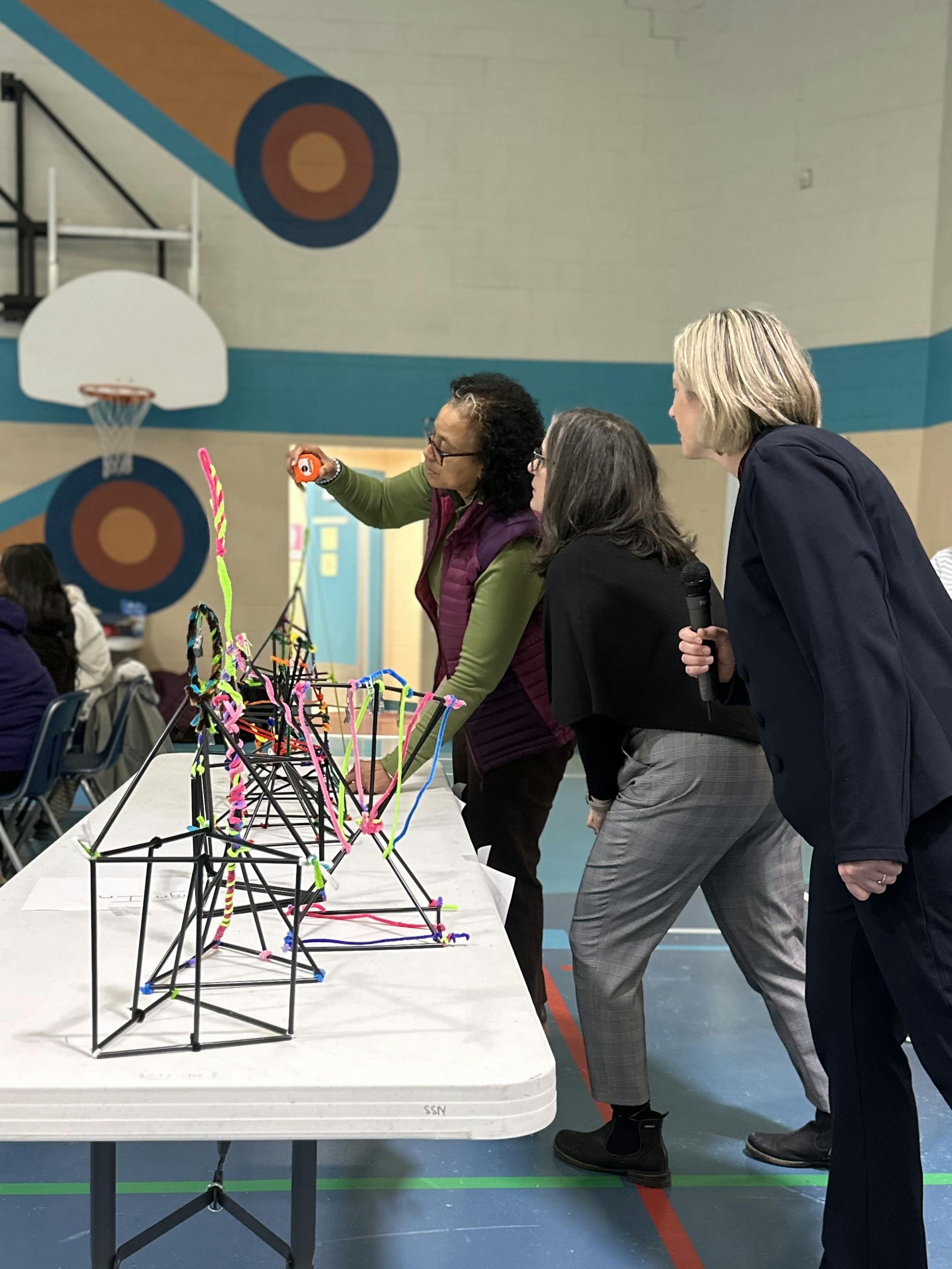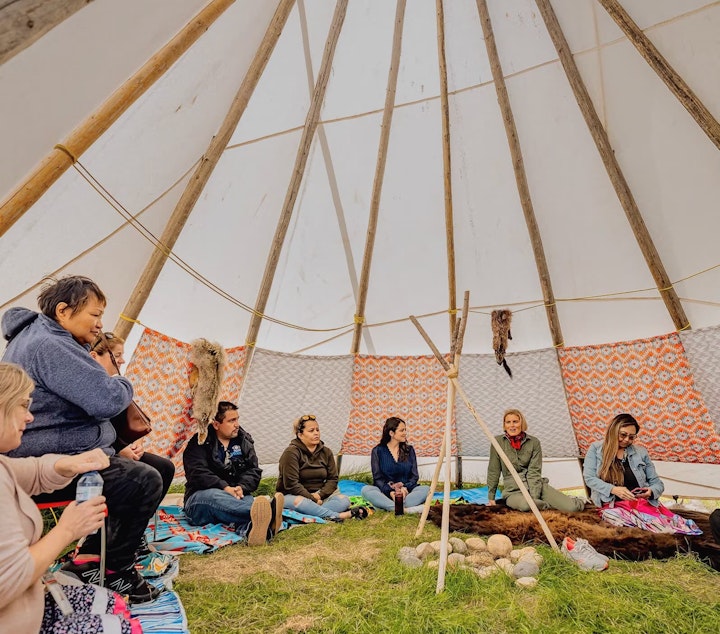Building Brighter Futures
Educational Well-being
Exploring Brain Development with Maskwacis Educational Assistants
On January 17, 2025, members of the Martin Family Initiative team had the privilege of spending a half-day learning alongside 75 educational assistants (EAs) from the Maskwacîs Education Schools Commission (MESC). The session, held at Grace Marie Swampy Primary School, focused on an essential topic: brain architecture and its impact on a child’s development in the early years.

A Hands-On Approach: The Brain Architecture Game
At the heart of the session was "The Brain Architecture Game," an engaging, hands-on activity that vividly demonstrates how experiences both positive and negative shape the development of a child’s brain. Presented by co-facilitators Christine Mejia, Ramona Shawana, and Heather Pennie, the game made the concept of brain development clear and meaningful for participants.
Using physical materials to build “brains,” the activity highlighted the significant effect of stress on brain development. As the game unfolded, participants could see how supportive relationships and positive experiences strengthen the structure, creating a foundation for resilience and long-term well-being.

Engagement and Reflection
Despite the large group, the level of engagement was extraordinary. Educational assistants actively participated, building their “brains” and reflecting on what their structures revealed. Many shared personal insights, describing what their “brain” experienced throughout the activity. These reflections sparked meaningful conversations about the crucial role of educational assistants in shaping children’s developmental outcomes.

Participants shared how impactful the activity was not only in helping them understand the science behind brain development but also in revealing practical ways to support children in their classrooms. The feedback highlighted how important it is for EAs to recognize the challenges children may face and to provide consistent, caring support during the school day.

"Engaging activities like The Brain Architecture Game provide valuable professional development for educators, helping them explore child development, their roles, and the unique support they offer students and communities.
Facilitating this dedicated group of educational assistants was a joy. Their shared stories and commitment to their students made the experience truly rewarding." - Heather Pennie, Director of Educational Well-Being
The Role of Early Experiences
Early childhood is a critical period for brain development, with experiences during these years having a lasting impact on learning, behaviour, and overall well-being. Stress and hardships, such as abuse, neglect, or poverty, can disrupt this development, creating challenges that persist into adulthood; however, positive, supportive interactions can counteract these effects, helping children develop resilience and thrive.

"The Brain Architecture Game is a great way to connect theory to practice. The pivotal role that educational assistants play in their relationships with students was realized as emotions quickly filled the room. Feelings of hope and promise permeated the learning space, highlighting [participants'] strong sense of commitment to the health and well-being of their students. It was an honour and privilege to share this experience with a passionate group of educational assistants." - Ramona Shawana, Curriculum and Learning Strategist
Educational assistants are more than classroom helpers; they are mentors, role models, and trusted adults who shape the school experience for children. Their work is vital to creating environments where children feel safe, supported, and empowered to learn.
Moving Forward
The professional development session at Grace Marie Swampy Primary School was more than an opportunity to share knowledge; it was a chance to connect, learn, and grow together. The hands-on learning not only inspired participants but also created a space for meaningful conversations about the role of EAs in supporting children's development.

As MFI continues its mission of creating new pathways for Indigenous children, sessions like this highlight the incredible impact of community partnerships and professional development. The commitment and enthusiasm of the 75 educational assistants who participated in this PD activity make it clear how important it is to invest in the people who guide and support children every day.
The day's success also underscores the power of collaboration and hands-on learning to inspire educators and enhance children's futures. To the EAs at Maskwacis: thank you for the work you do. Together, we are building brighter futures for our Indigenous children—one classroom at a time.



